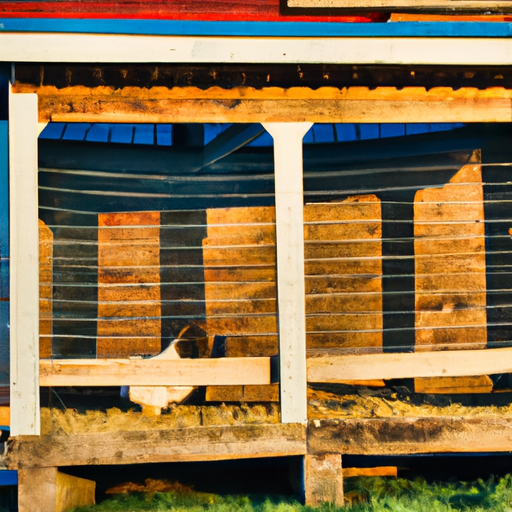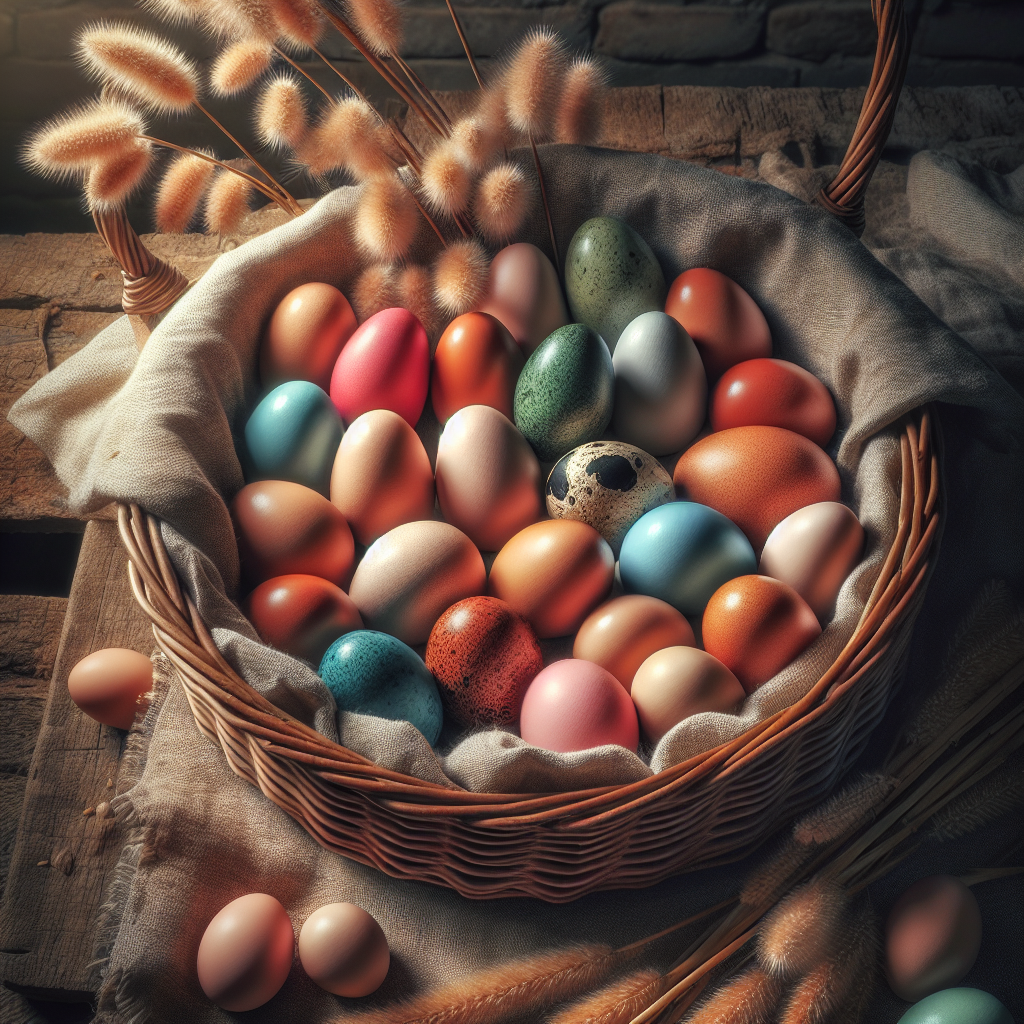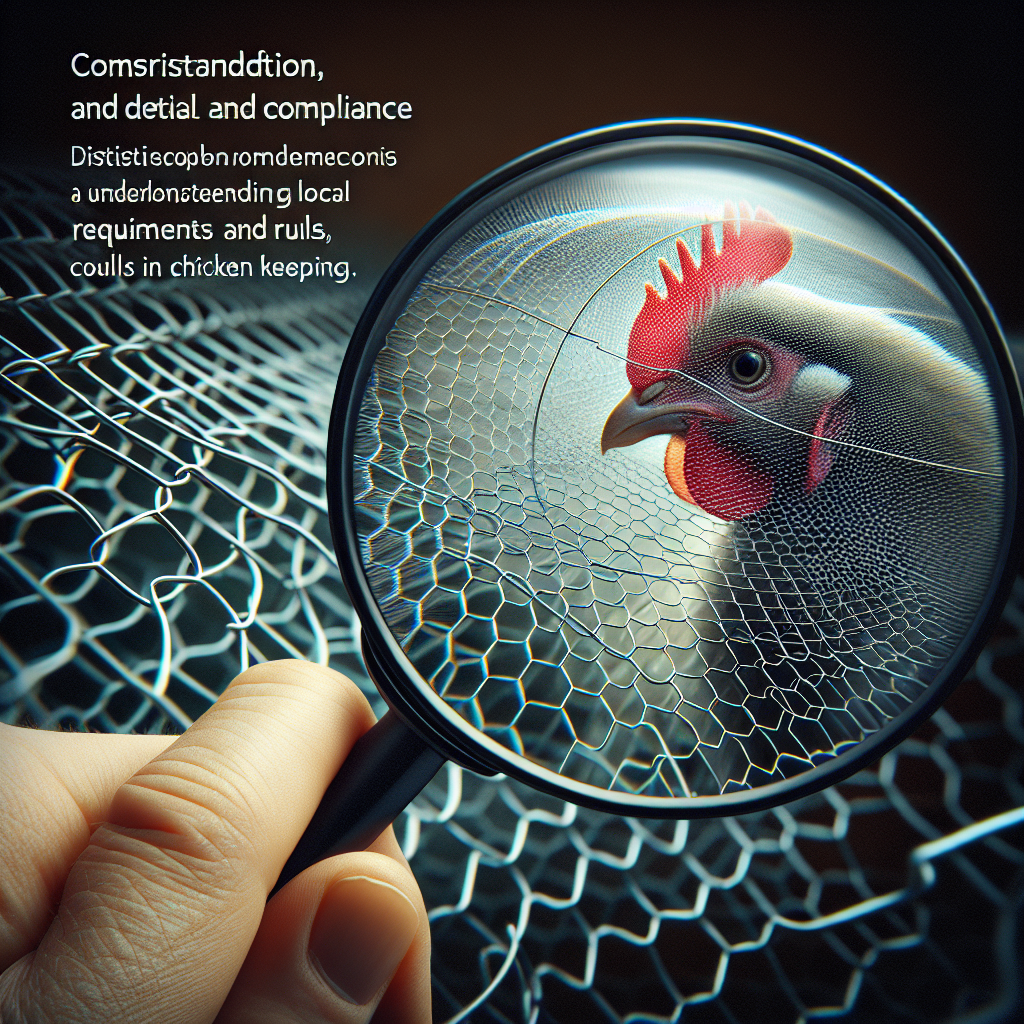So you’ve decided to venture into the world of chicken keeping! Congratulations on embarking on this exciting journey. As a new chicken keeper, it’s important to have the right tools and equipment to ensure the health and happiness of your feathered friends. From a sturdy chicken coop to essential supplies like feeders and waterers, being well-prepared will set you on the path to success in raising your flock. In this article, we will explore the crucial basic equipment and tools that every new chicken keeper should have, providing you with a solid foundation to start your chicken keeping adventure.
Housing and Shelter
Coop
A coop is an essential structure for housing chickens. It provides them with a safe and secure place to roost, lay eggs, and seek shelter from the elements. Ensure that the coop is spacious enough to accommodate the number of chickens you have and has adequate ventilation. Make sure the coop is made of sturdy, predator-proof materials and has windows or vents that can be opened and closed to regulate temperature and airflow.
Run
A chicken run is an enclosed outdoor area attached to the coop where the chickens can stretch their legs and enjoy some fresh air. It is important to provide ample space in the run to allow the chickens to exercise and forage. This will help keep them healthy and happy. Ensure that the run is securely fenced to keep predators out and chickens in.
Nesting Boxes
Nesting boxes are where chickens lay their eggs. It is important to have enough nest boxes for the number of chickens you have, with each box providing a suitable and comfortable space for egg-laying. Nesting boxes should be filled with soft bedding material such as straw or wood shavings to ensure a cozy and clean environment for the hens.
Perches
Chickens naturally prefer to roost on elevated perches during the night. Provide perches inside the coop that are at least 2 inches wide to allow chickens to comfortably grip them. Make sure the perches are positioned away from the nesting boxes to prevent droppings from soiling the eggs.
Bedding Material
Bedding material is necessary to keep the coop clean, provide insulation, and absorb moisture. Pine shavings, straw, or hay can be used as bedding. Regularly clean and replace the bedding to maintain a hygienic environment for the chickens. Avoid using cedar chips or newspaper as bedding material as they can be harmful to the chickens.
Feeding and Watering
Feeders
Feeding chickens a balanced diet is crucial for their health and egg production. Choose a feeder that can hold enough feed for your flock and is easy for chickens to access. Feeders with protected openings are ideal to prevent spillage and contamination. Place the feeder at a convenient height and regularly monitor and refill it with fresh feed.
Waterers
Providing clean, fresh water is essential for chickens’ well-being. Select a waterer that is large enough to provide an adequate supply of water throughout the day. Choose one that is easy to refill and clean. Consider using a waterer with a secure lid or cover to prevent contamination and spills. Ensure that the waterer is positioned at a height that allows easy access for the chickens.
Feed Storage
Storing chicken feed properly is important to maintain its freshness and prevent pests. Use airtight containers or bins to store the feed in a cool, dry place. This will help protect the feed from moisture, pests, and rodents. It is also recommended to label the containers with the type of feed and expiration date.
Health and Hygiene
Veterinary Contact
Having access to a reliable and experienced avian veterinarian is crucial for maintaining your chickens’ health. Regular check-ups and vaccinations can help prevent and detect any potential diseases. It is important to establish a good relationship with a reputable veterinarian who can provide guidance and treatment when needed.
First Aid Kit
A well-stocked first aid kit is essential for handling minor injuries or illnesses that chickens may encounter. It should include items such as wound disinfectant, bandages, scissors, gloves, and poultry-specific medications. Familiarize yourself with basic chicken first aid procedures and keep the kit easily accessible.
Pest Control
Implementing an effective pest control plan is necessary to protect your chickens from parasites such as mites, lice, and fleas. Regularly inspect the coop and birds for signs of infestations and take appropriate measures to control and eliminate pests. Use poultry-safe products and follow the instructions carefully to avoid harming the chickens.
Cleaning Supplies
Maintaining a clean coop and surrounding area is crucial for the chickens’ health. Regularly clean the coop, nesting boxes, and run using poultry-friendly cleaning products. Have supplies such as brushes, scrapers, and disinfectants to ensure proper hygiene. Regularly remove and dispose of soiled bedding and waste to prevent the build-up of bacteria and odors.
Maintenance and Safety
Predator Protection
Protecting your chickens from predators is essential to ensure their safety. Secure the coop and run with sturdy fencing that extends underground to prevent digging predators. Install locks and latches on doors and windows to keep out raccoons, foxes, and other potential threats. Consider using motion-activated lights or alarms to deter nocturnal predators.
Fencing
Good quality fencing is necessary to keep your chickens contained and safe within their designated areas. Use sturdy wire mesh or chicken wire that is tightly secured to prevent predators and rodents from accessing the coop and run. Regularly inspect the fencing for any damage or gaps that may compromise its effectiveness.
Tools for Repair
Having basic tools for coop maintenance and repairs is important. Keep a toolbox with items such as a hammer, pliers, wire cutters, and screwdrivers. This will enable you to quickly address any issues with the coop and fencing, ensuring the safety and comfort of your chickens.
Lighting
Proper lighting in the coop can help maintain the chickens’ health and egg production. Use natural or artificial lighting to simulate a regular day-night cycle. Adequate light is essential for chickens’ overall well-being and plays a crucial role in their reproductive and laying cycles. Monitor and adjust the lighting to ensure optimal conditions for your flock.
Handling and Transport
Gloves
Wearing gloves when handling chickens can help protect both you and the birds. Opt for gloves that provide a good grip and allow for dexterity. They should be easy to clean and disinfect. Gloves can minimize the risk of scratches, bites, and the transmission of diseases.
Feed Scoop
A feed scoop is a handy tool for easily and accurately measuring and dispensing chicken feed. It helps minimize waste and ensures that each chicken receives the appropriate amount of feed. Look for a durable scoop that is easy to handle and clean.
Transport Box
Having a transport box is important for safely moving chickens when necessary. Whether it’s taking them to the vet or relocating them to a new coop or run, a sturdy and well-ventilated transport box is essential. Choose one that is spacious enough to accommodate the chickens comfortably and has secure closures to prevent escape.
Chicken Harness
A chicken harness can be useful for safely restraining chickens during handling or when taking them outside for supervised free-ranging. It allows you to have better control over their movements and helps prevent them from wandering off or getting into dangerous situations. Select a harness that is appropriately sized for your chickens and comfortable for them to wear.
Breeding and Incubation
Incubator
If you plan to breed your chickens, an incubator is an essential tool for artificially hatching eggs. It provides optimal conditions for embryonic development, such as temperature and humidity control. Choose an incubator with user-friendly controls and automatic turning features for convenience.
Egg Turner
An egg turner is a device used in incubators to mimic the natural movement of a broody hen. It gently rotates the eggs to prevent the embryos from sticking to the shell and to ensure even development. Investing in an egg turner can improve the hatching success rate and save you the time and effort of manually turning eggs multiple times a day.
Candling Device
Candling is the process of shining a bright light through the eggs to observe the development and viability of the embryos. A candling device, such as a candling lamp or flashlight, is essential for this purpose. It allows you to identify any abnormalities or non-viable eggs and remove them from the incubator to prevent contamination.
Brooder
A brooder is a warm and safe environment for newly hatched chicks until they are old enough to join the rest of the flock. It provides a heat source, such as a heat lamp, and ample space for the chicks to move around. Ensure that the brooder is well-ventilated, clean, and free from drafts to promote healthy growth and development.
Egg Collection and Storage
Egg Basket
An egg basket is a convenient and stylish way to collect and transport freshly laid eggs. Choose a basket that provides protection and cushioning to prevent damage to the eggs. Look for one with a handle for easy carrying and opt for a design that allows good airflow to keep the eggs fresh.
Egg Cartons
Egg cartons are an essential item for storing and organizing your collected eggs. They help protect the eggs and keep them safe during transportation. Choose sturdy, clean, and properly labeled cartons to ensure the eggs’ quality and freshness.
Egg Storage Container
If you have a surplus of eggs and plan to store them for an extended period, an egg storage container is a valuable tool. These containers are designed to maintain the optimal temperature and humidity for egg storage. They help prolong the freshness and prevent spoilage of the eggs.
Education and Reference
Chicken Keeping Books
Investing in a few informative chicken keeping books can provide you with valuable knowledge and guidance along your chicken-keeping journey. Look for books that cover various topics, such as breed selection, health management, and coop design. These books can serve as a handy reference whenever you have questions or need advice.
Online Resources
The internet is a treasure trove of information for chicken keepers. There are numerous websites, forums, and blogs dedicated to poultry keeping. Explore reputable online resources for tips, troubleshooting, and insights from experienced chicken owners. These resources can help expand your knowledge and connect you with a supportive community of fellow chicken enthusiasts.
Local Chicken Keeping Groups
Joining local chicken keeping groups can be a great way to learn from experienced chicken keepers in your area. These groups often organize meetups, workshops, and educational events where you can gain hands-on experience and network with other chicken enthusiasts. They can also provide valuable local insights and advice specific to your region.
Supplements and Treats
Calcium Supplements
Calcium is essential for strong eggshells and overall chicken health. Offering a calcium supplement in the form of crushed oyster shells or calcium-rich grit can ensure that your hens have an adequate supply of this vital mineral. Place the supplement in a separate feeder or mix it with their regular feed.
Grit
Grit is small stones or shell fragments that chickens need for proper digestion. It helps grind food in their gizzard, aiding in the breakdown of fibrous material. Provide your chickens with poultry grit or offer them access to a free-ranging area where they can naturally find suitable grit.
Healthy Treats
Treats can be a fun way to reward and bond with your chickens, but it’s important to offer them in moderation. Provide your flock with healthy treats such as fresh fruits, vegetables, mealworms, or herbs. Avoid giving them sugary or fatty treats that can negatively impact their health.
Egg Incubation and Hatching
Incubation Guide
An incubation guide is a comprehensive resource that provides step-by-step instructions on how to successfully incubate and hatch eggs. It covers topics such as setting up the incubator, temperature and humidity control, turning eggs, and troubleshooting common issues. Refer to a reliable incubation guide to maximize your hatching success.
Thermometer
Maintaining the proper temperature is crucial during egg incubation. A reliable thermometer is essential for accurately monitoring the temperature inside the incubator. Look for a thermometer that is designed specifically for egg incubation and has a clear and easy-to-read display.
Hygrometer
Humidity levels play a critical role in egg incubation. A hygrometer measures the moisture content in the incubator, allowing you to ensure optimal humidity levels for successful hatching. Choose a hygrometer that is accurate and easy to read to avoid any fluctuations that could impact the eggs’ development.
Egg Candler
Candling eggs during incubation helps monitor their progress and detect any abnormalities. An egg candler is a device that provides bright and focused light to illuminate the interior of the eggs. This allows you to observe the development, check for signs of life, and remove non-viable eggs. Invest in a reliable egg candler for effective monitoring during incubation.
By having this comprehensive set of equipment and tools, you will be well-prepared to embark on your chicken-keeping journey. Remember to prioritize the health, safety, and well-being of your flock, and enjoy the rewarding experience of caring for and raising chickens. Happy chicken-keeping!




